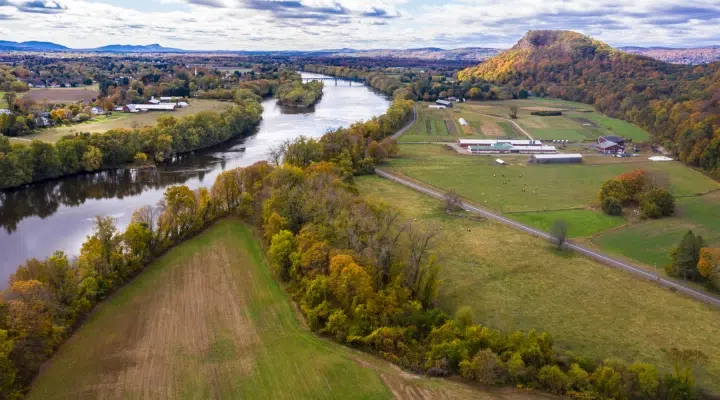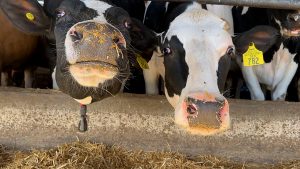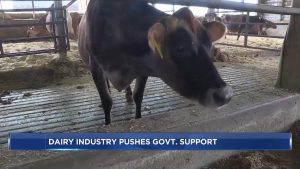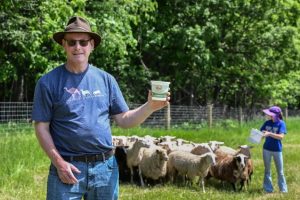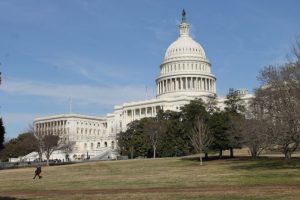
With matching funds, the total amount awarded through the ACTION program is $989,550.
The Foundation for Food & Agriculture Research (FFAR) has announced three grants totaling $474,550 as part of the Achieving Conservation through Targeting Information, Outreach and Networking (ACTION) program. ACTION supports projects exploring how to increase landowner willingness to adopt conservation practices that provide a range of ecosystem benefits. The Walton Family Foundation provided matching funds to the ACTION program.
Researchers at Iowa State University (ISU), The Ohio State University (OSU) and University of Wisconsin-Madison Division of Extension (UW) received grants to increase farmers’ use of conservation practices, in particular in-field, edge-of-field and edge-of-stream practices that include controlled drainage, grassed waterways and restored wetlands. Edge-of-field practices can help farmers regulate water storage, improve water quality, support soil health and enhance wildlife habitat in working landscapes. However, implementation of conservation practices has proven to be a challenge in part due to a lack of effective knowledge of the barriers and challenges to implementation. The three complementary projects will explore how technical support and information, peer-to-peer networks and strategic interventions can overcome the concerns and barriers to implementation.
The ACTION program is providing grants to the following:
Dr. Thomas Isenhart, Professor, Natural Resource Ecology and Management, ISU
FFAR grant amount: $226,636
Total grant amount: $480,426
The cost and complexity of technical assistance is a major barrier to large scale adoption of edge-of-field conservation practices. Isenhart’s project is equipping farmers and other professionals to deliver edge-of-field practices at scale in the Upper Mississippi River Basin. Researchers are studying models being used to implement these practices and are compiling intervention and engagement strategies that can be tailored to local conditions and target audiences. The project is using these studies to produce data-driven decision support tools that will allow farmers to scale up practices.
Isenhart received additional matching funds from Agricultural Drainage Management Coalition and Illinois Sustainable Ag Partnership.
Jenny Seifert, Watershed Outreach Specialist, UW
FFAR grant amount: $127,676
Total grant amount: $262,200
Seifert, along with collaborators Dr. Beth Baker of Mississippi State University and Dr. Amanda Gumbert of University of Kentucky Cooperative Extension, are testing two engagement approaches to increase farmer willingness to adopt conservation practices. These approaches, both informed by social sciences, facilitate peer learning among farmers. The first approach is a series of virtual meetups for farmers to foster peer-to-peer conversation about implementing conservation practices. The second approach is a mini-grant program that will support pairs of farmers and farm advisors to implement edge-of-field practices, learn how to become opinion leaders and develop multimedia to encourage other farmers to adopt conservation practices. They will evaluate both approaches to understand their effectiveness and share lessons learned to help farmer outreach efforts achieve their goals of increasing conservation practice adoption.
Dr. Robyn Wilson, Professor, Risk Analysis and Decision Science, OSU
FFAR grant amount: $120,238
Total grant amount: $246,924
Almost half of growers who do not implement conservation practices have positive attitudes about those practices. Dr. Wilson’s project is testing the effects of interventions meant to close this gap. Researchers will develop targeted engagement that addresses farmers’ needs, including plans for overcoming challenges and maintaining motivation to continue conservation practices when financial incentives end. To achieve this, Wilson’s team is developing interventions that target the gap between valuing conservation and implementing practices, assessing their effectiveness and creating guidance for scaling up the proposed interventions.
With matching funds, the total amount awarded through the ACTION program is $989,550.
“Working with farmers to understand their concerns related to agricultural water management is critical to building willingness and capacity to install the right practice in the optimal location,” said Dr. Kathleen Boomer, FFAR scientific program director for Sustainable Water Management. “Feedback will also inform how or where additional research can reduce real or perceived risks.”
“I’m excited to test these ideas because we know how important social networks are to farmers and their decision-making, particularly about whether or not to try a conservation practice, but we are still learning how to design famer engagement methods in ways that help lead to conservation practice adoption at more widespread scale,” said Seifert of UW. “This has been a tough nut to crack and probably keeps many conservation professionals up at night. So we hope to generate new insights about what works that can lead to replicable outreach models that are reaching the farmers we really need to reach and support.”
Foundation for Food & Agriculture Research
The Foundation for Food & Agriculture Research (FFAR) builds public-private partnerships to fund bold research addressing big food and agriculture challenges. FFAR was established in the 2014 Farm Bill to increase public agriculture research investments, fill knowledge gaps and complement the U.S. Department of Agriculture’s research agenda. FFAR’s model matches federal funding from Congress with private funding, delivering a powerful return on taxpayer investment. Through collaboration and partnerships, FFAR advances actionable science benefiting farmers, consumers and the environment.
–Foundation for Food & Agriculture Research
